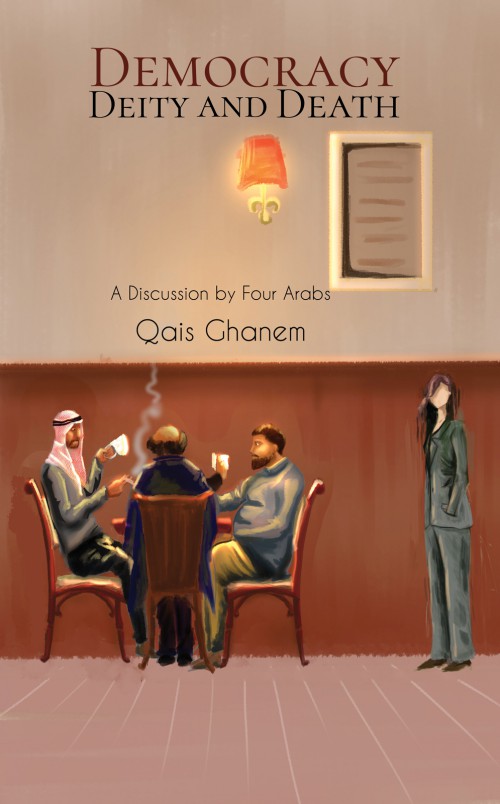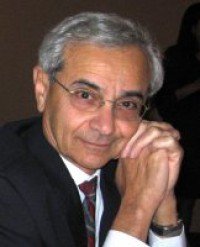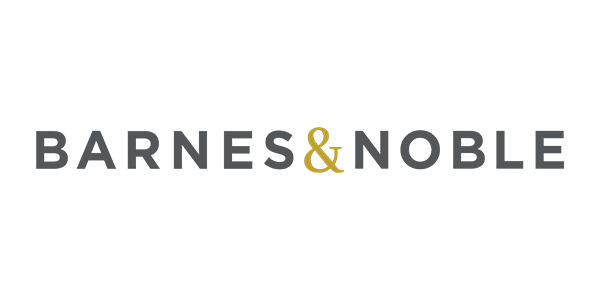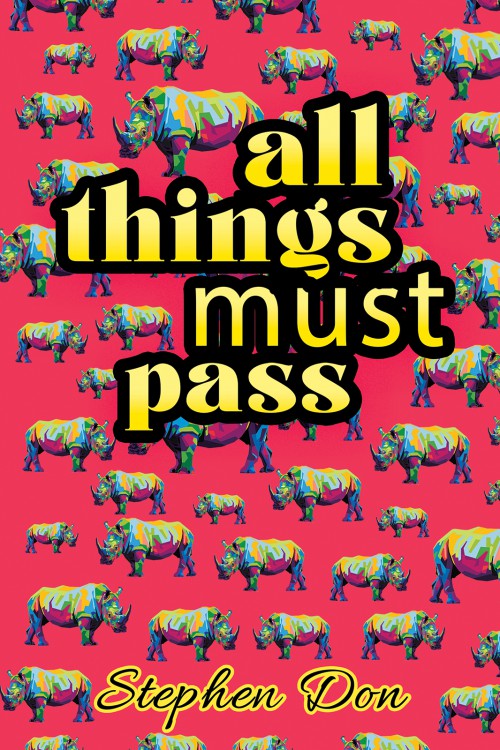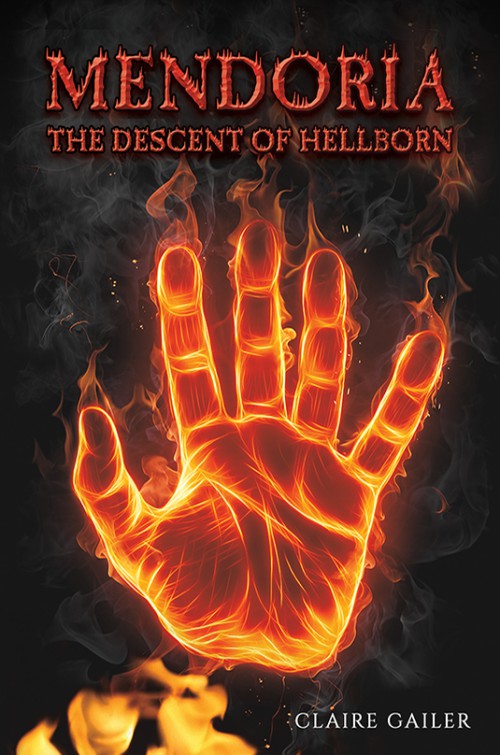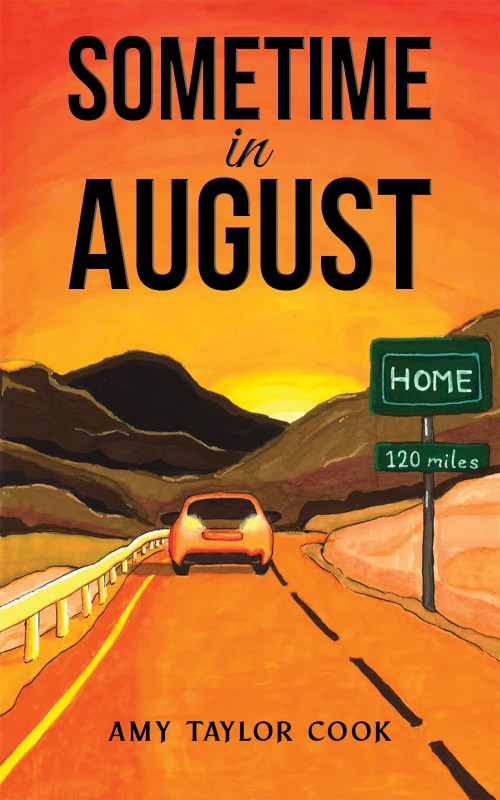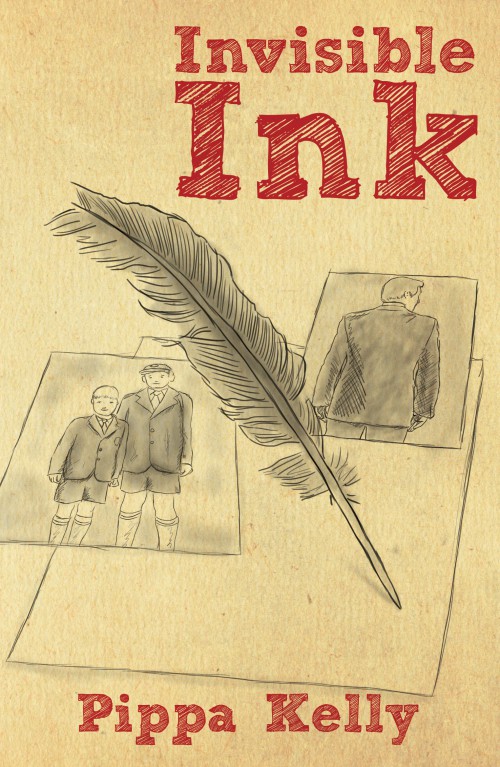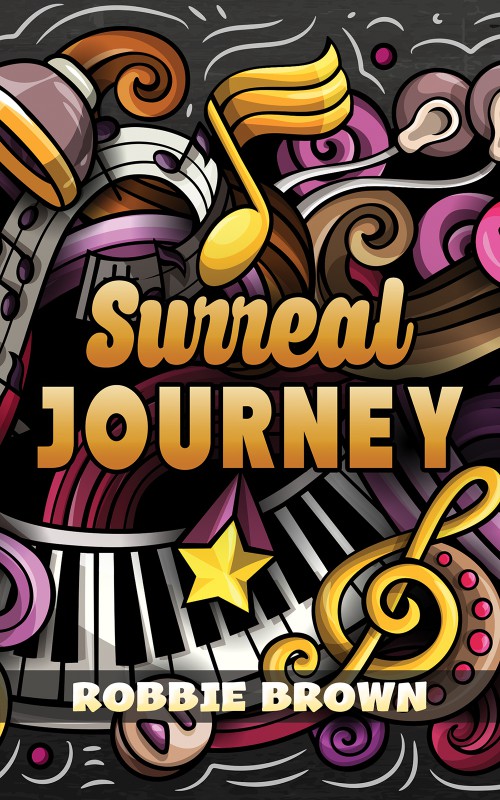-
TAREK FATAH, Toronto, Canada, Authhor of "Chasing a Mirage"
These are the ‘Four Arabs’ who fill Qais Ghanem’s 130-page book with their opinions and discussions on ‘Democracy, Deity and Death,’ which is the sub-title of his book, but in essence, page after page, these four Arabs primarily discuss Islam as well as Sharia the 8th century laws whose weight has become the burden a billion Muslims today.
Every Muslim home should have a copy of ‘Four Arabs’ and they will find in it a reflection of the discussions all of us have, in varying degrees. Dr. Ghanem has done us all a tremendous favour and a service in using fiction to lay bare the truth we are told never to utter in public lest the ‘kufaar’ find a chink in non-existent armour.
Part of Review by TAREK FATAH , famous Toronto Author of Chasing a Mirage
-
Elie M Nasrallah, Ottawa, Canada, Immigration Consultant and author of “Hostage to History: The Cultural Collapse of the 21st Arab World.”
Taboos are absent from this masterpiece of current Arab catastrophic conditions. Search as long as you wish, no taboo will be found, and that is the genius of this timely and timeless book!
As someone who was born in Lebanon and educated during my adolescent years in the town of Zahle ( chapter four), I found the reference to Sam as a brilliant metaphor for that alluring town and Lebanon as well.
The tribal references by Adonis are also relevant. One British general once remarked that “most states of the Arab world are tribes with flags except Egypt and Tunisia.”
Cafe Mocha is the cafe of the Arab world made easy, accessible and mandatory.
As someone who wrote a book titled “Hostage to History: The Cultural Collapse of the 21st Century Arab World,” I find this fictional narrative as compelling and pertinent as any factual description and academic examination of the ailing body politics of Arab decline.
In fiction and non-fiction books and studies, one fact becomes clear: To join modernity and renew their golden age, Arabs must adopt the workable solution of modernity; the separation of church/mosque from politics.
That protects both domains and ensures freedom for all.
Democracy, deity, and fear of death are all examined in a surgical way that only a doctor like Qais Ghanem is capable of.
I my opinion, the book would have been even more compelling had it contained two men and two women of opposite views politically and religiously. One modern and liberal woman, and another conservative and ultra-religious.
Their debate would have added immensely to the emancipation of woman as the book envisions and aims toward. There shall be no taboo...!!!
Elie M Nasrallah, author of “Hostage to History: The Cultural Collapse of the 21st Arab World.”
-
5 out of 5 stars
A CONTROVERSIAL BOOK
Comments on Qais Ghanem’s book The Four Arabs
This is a fascinating book. I could not put it down and finished it within 24 hours!
Four Arabs: an old Egyptian who is a professor in Edinburgh; his banker niece in London; her gay Christian male friend who is a real estate agent; and a conservative cleric meet on several occasions in London. They have one thing in common: an intense interest in what’s happening in the Middle East, with its failure to deal with modernity, its dysfunctional political systems, corrupt dictators, poor education and many inequities, not the least of which revolves around women’s rights.
The author cleverly uses his characters to debate these issues. Apart from the cleric, who provides the conservative understanding of Islam, the others are equally cleverly used by the author to raise and discuss controversial issues on the nature of divinity, scripture, our origin and destiny, dogma, identity, sexual orientation, the absence of a free press in Middle Eastern countries, whether there are “chosen” peoples on earth, and many other topics.
Readers, especially those originating in the Middle East, will find this book to be very provocative but also very interesting. It is bound to be read widely and will be seen as a mini-encyclopaedia, a veritable curriculum, and a great conversation starter!
I highly recommend it to all who want to understand the Middle East and its three monotheistic traditions. It is both hopeful, in that the characters express hope for change, for the way in which the religions, and especially Islam, will find peace with modernity; and gloomy, in that the people being discussed still cannot let go of their great historical achievements, haven’t learned, and are unlikely ever, to learn how to use logic (!!), and always fail to listen to each other, and so consensus among them is impossible. There are undoubtedly some minor exaggerations, but the writing is fluid, the momentum never wanes, and everything is all done so beautifully, with great dollops of heart-warming humour!
-
The frank and honest discussions between characters with different worldviews offer a model of respectful debate for our times. While the subtitle is: A Discussion by Four Arabs, the book really applies to all of us and the often complex conversations we need to embrace in our diverse society. In essence, how we can disagree (respectfully) with one another and yet still get along.
Another worthwhile read I just finished by the same author is: My Arab Spring My Canada.
-
4.0 out of 5 stars September 3, 2019
I really REALLY enjoyed your book...I read it slowly so that I could absorb their thinking. Of course I felt most drawn to the thinking of Samia and Saleh...they sounded like people I would love to spend time with. I wished they had been with us at Potlucks 4 Peace. Same with Sam. although as he was a Christian I felt I understood him right from the beginning because after all I grew up in a Christian world while buried in a Jewish community. Initially I wished that they all still lived in the Middle East so I could get that perspective and then I realized that that perspective is not what I needed to hear. Sam, Samia and Saleh were so wise and universal in their thinking just because they had traveled and lived outside the cradle of Islam in the M-E. The imam taught me that...I found myself irritable with him at times and other times I just want to slap him up the side of his head...the absolute conviction he held of ‘truth’. As a younger person in my community in Hamilton I often raged internally at exactly the same behaviour and beliefs of the orthodox Jewish community of which I was a part. Once I left for university in TO I left Judaism behind and have never regretted it...it allowed for my expansion into other ways of seeing beliefs, concepts, absolutism...and be able to listen, hear, accept how the other thinks (yet still getting irritable at absolutism)...and holding on to my openness to other ways of thinking (and of course as a good little human definitely believing that my way is the better way—how odd we humans are!). Good book Qais...write another one.
-
Is Religion the Problem?
I have enjoyed reading the discussions presented in the book, even if I am not either a Muslim or Arab. Most of the issues discussed in the book are also applicable to other cultures and religions. The problem I found is that it is difficult to sustain an argument based on: “I follow what Allah dictates”, which is what roughly speaking, the Muslim character in the book says most of the time.
The book is written in a clear and direct language, which I found very appropriate for the purposes I believe the author had in mind in writing the book.
The author seems to believe that the main problem in the Arab world is due to religion. I am not so sure. I believe religion is one of the tools used to manipulate human beings. Religion is used not just in the Arab world but also in other religions and some of the characters recognize that. However, I believe that the main problem is not a religion but ignorance and the lack of a questioning attitude that ignorance brings in a human being.
The Western world is no longer using religion to manipulate people because that is no longer sustainable in the West, but they have found other ways…
Enjoyable book
-
Bill Fairbairn - Author of Newsboy, published by Austin Macauley
A brainstormer on the Middle East
Here, in one book by Qais Ghanem, we have a modern and ancient history of the Middle East named Democracy, Deity and Death.
Four Arabs, one a woman, are seated around a table on several occasions in London, discussing what went wrong and how to right it. The book's four Arab debaters have different beliefs, but an intent interest on what is happening in the Middle East. The first, Abul Raheem, is a devout Muslim from Yemen, born in Wales, and who had moved back to Britain from the Middle East. The second, is Sam, a Lebanese Christian homosexual. The third is a retired Muslim Egyptian professor of biology named Saleh. The fourth is Samia, a London bank manager, who has discarded her Islamic tradition and beliefs.
Qais Ghanem, himself an accomplished debater, had regularly met for coffee with a small bunch of elders like himself, Arab men, and a woman or two, in the Alta Vista area. “It goes without saying,” he writes, “that the conversations turn into a debate about the chaotic state of the Arab world.” Qais acknowledges the influence of other writers whom he terms more learned than himself on life in the present or the hereafter.
As a book reviewer, I'm on par with Professor Abdulla Daar of Toronto, who saw Qais's book as a veritable Middle East curriculum for youth at a needy time. Haphazardly opening at page 54 I found this contemporary debate n women's rights:
I conclude that Qais's mini-encyclopaedia, published by Austin Macauley of London, should be on western high-school-and-upward curriculums given the turmoil between East and West today. I did have first-hand insight as a journalist into European, African and North American countries, but insight only from what I read about in the Middle East. My closest experience was when I was on a passenger ship passing Aden on my way home to Scotland and now wishing the ship had called at the then British colony where Qais Ghanem was born.
Qais describes his book to the billions who struggle with the concept of “what happens to them when they leave this world, how they should treat people of other faiths, and whether and why their faiths may be no better than the faiths of others, after all.” On resurrection, he quotes what American social theorist Stuart Chase wrote: “For those who believe no proof is necessary. But for those who do not believe, no proof is possible.”
This book is well worth reading whether one believes or needs to believe, one way or the other.
-
Democracy, Deity and Death is the title of this seventh book by the Yemeni-Canadian physician, Dr Qais Ghanem. The subtitle, A Discussion by Four Arabs, gives a better summary of the content of the book, as Ghanem uses the device of four friends meeting regularly in a coffee shop in London and discussing, and sometimes arguing about, the current state of the Arab world and in particular, the interrelationship with the predominant religion, Islam. They bemoan the perceived current backwardness of the Arab countries in the Middle East and North Africa in comparison with the Western world. Some of the backwardnesses are attributed to a tendency to hark back several centuries when Arab influence extended across Africa to southern and western Europe and the yearn for past glories. However, they hold Islam as the main reason for stagnation, particularly with its resistance to any change and to maintain that the rules of the sixth century that may indeed have led to the glories of the centuries that followed need to be reinterpreted to be valid in today’s world. For non-Moslems, this book contains a great deal of enlightenment on Islam and the problems of the Middle East. However, I would think that it is more directed toward those who, having emigrated to the western world, must find themselves torn between maintaining old traditions, many of which are of undoubted value, and trying to adapt to their new homeland where freedom may seem unbounded but also lacking in guiding moral principles. The most value from reading this book will come to those who, still living in the East, have the courage to read it with an open mind. If so, there is the reason to hope that the spirit that gave rise to the “Arab Spring” will find inspiration to continue to fight for human dignity and freedom and will give way to a real “Arab Summer”.
-
This fast-paced and highly readable book by Dr Qais Ghanem describes discussions and debates among four Arab participants held on a regular weekly basis, almost always at a London café.
The participants include an elderly Egyptian professor based in Edinburgh, his niece, a bank manager who no longer follows Islamic beliefs or customs, her friend, a homosexual Lebanese Christian and, lastly, a devout Yemeni Muslim. Given the various backgrounds, past experiences and interests of these individuals, the discussions cover many topics that express their various beliefs with passion, candor and, at times, with humour! The sessions cover a wide variety of topics as is indicated in the volume title. These include democracy, deity, and death as well as a dictatorship, absence of a free press and a paucity of women’s rights.
The discussions are fast-paced, “ring true” and build in intensity as the text progresses with a number of humorous moments. The spoken text of the disagreements and agreements among the participants would make an excellent short piece of theater, where the participants would include the stark diversity of an elderly Egyptian professor based in Edinburgh, his niece who is a bank manager who no longer follows Islamic beliefs or customs, her friend a homosexual Lebanese Christian and lastly a devout Yemeni Muslim.
This book is highly recommended for all who wish to increase their understanding of the Middle East. It explores many of the problems and the richness of current Arab culture. Dr Ghanem is a Canadian of Yemeni origin and knows of what he writes.
Roger J. Broughton MD, PhD
Professor Emeritus, U of Ottawa
-
Once again, Dr Qais Ghanem, in his latest book, DEMOCRACY, DEITY AND DEATH, hits a high note.
He presents to the reader, characters who bring to the table different perspectives, ideas and beliefs. And, through the discussions and debates of these characters, the author imparts knowledge and views dealing with democracy, the varying degrees of beliefs and the finality of death. The four characters, being Arabs and from the Middle-East, bring to the fore the today issues of the struggle that the region is facing with resisting breaking away from hard-core beliefs and traditions, lack of education, poverty and being governed by dictators and sometimes despots.
This book is a worthwhile challenge to readers who are originally from the Middle-East, and, to the others, it will be a real eye-opener about a region that is still veiled in half-truths and mystique.
I highly recommend reading it. Actually, any curriculum of social studies would be enhanced by its inclusion. In its own way, this book challenges the inquisitive mind on two fundamental questions: “Where do we come from?” and, “Where are we going?”
Enjoy reading it, I am sure you will have a hard time putting it down till the end!
Essam Edgard Same`
Ottawa, Canada
-
In twelve short chapters, this book explores the wide field of current attitudes, beliefs and opinions that shape Arab Islamic views, as compared with those of their secular kinfolk. The stranger to Islam is gently led to a better understanding of its people by the conversation between the four characters in the book, as it unfolds often complicated issues.
I thank Qais Ghanem for opening a window onto the Arab mind and wish that I had read his words in my youth. I also wish that there were more writers of his ability to explain the internal problems of Islam. They do exist, he says, but mostly keep silence for fear of imprisonment or death. Islam does not tolerate dissent, an attitude that suits dictators and extremists alike.
John A.T. Duncan (Author of The Best of Health or Tales Out Of Medical School)
-
Ahmed F. Shalabi, PhD, P.Eng., Ottawa, Canada
As an Egyptian and a Canadian for more than 50 years, Dr Ghanem's discussion by 'Four Arabs' is a wonderful dialogue that highlights the diversity of hope and religious pluralism coexisting in the Arab world. The main theme of the book is a call for an intellectual revolution that allows Arabs to discover, discuss, self-criticize, self-deny, and re-negotiate above the laws without any theological input. I highly recommend it!
-
Dr. Ahmed Shalabi, Ottawa, Canada
For me, as a Canadian of Egyptian origin, for the past 50 years, Dr Ghanem's discussion by 'Four Arabs' is a wonderful dialogue that highlights the importance of diversity of hope for religious pluralism coexisting in the Arab world. The main takeaway from the book is a call for an intellectual revolution that allows Arabs to discover, discuss, self-criticize, self-deny, and re-negotiate above the 'laws' without any theological input. I highly recommend it.
-
I thoroughly enjoyed this thoughtful novel by Dr Ghanem. The quite diverse 'Four Arabs' maintained this reader's attention from the first page to the last. One might think that a novel that is based upon a series of discussions by the same four people, with hardly any other characters, would unavoidably be rather dry. Not at all. It was fascinating. For anyone seeking to broaden their understanding of the Arab world, this book provides a painless introduction, and, it's also a darn good read.
The Arab world is volatile, and a dangerously warming global climate will only exacerbate that. Holy books of all religions were written for the people of ancient cultures, but the world has moved on, negating many of their injunctions. And so, modernity calls, but Islam, all too often, stubbornly resists modernity. It is the same with all fundamentalist religions. One can only hope that temperate and progressive voices will become more prominent, perhaps as the four participants, drinking their coffee in comfort and security, discuss with wit and courtesy. That they have the insights both of maturity, and of youth, certainly makes this a thoughtful adventure in Arab affairs, and offers hope for a route to a better future.
-
Paul Maillet, Director of the Center for Ethics, Ottawa, Canada
2019 Book Review Democracy Deity and Death by Paul Maillet
A very informative read for anyone interested in the current coffee shop talk of the Arabic-Muslim community. From the perspective of four Arabs living in the west; this book is a tour of critical thinking and dialogue that is emerging in the Arab culture in counterpoint to the predisposition for unquestioning obedience to religious power, authority and autocratic regimes. A tour of that includes social issues long considered unexamined and unchallenged. Although the book is written in a lighthearted and easy conversational manner, it takes on serious questions and concerns.
The dialogue of the book explores the Arab Muslim struggle to acculturate the currents of technology, democracy and rights, with Arab history and culture. It explores the tension between finding a new place in the world in the face of the nostalgia for past glory.
The four Arabs touch on the causes and conditions of current Arab and Muslim culture in the mid-east and the west. They bemoan the current incompatibility of democracy, rights and freedoms with the power, war and violence of the Mid East They discuss culture having one foot in past glory, another in dictatorships and monarchies, corruption, suffering and war, all this in a struggle for some reconciliation with the rest of the world. I felt a pervasive a sense of angst and confusion for a culture they fear is in decline. The dialogue is a tour of the confusion of tribal, ethnic, sectarian, linguistic, religious, cultural and political currents in the Arab world that point to an uncertain future.
The book communicates a sense of despair and stubbornness for current conditions and lack of rights in Arab Muslim cultures. However, this book also is an important view of the weak signals that may presage a revolution in Arab culture. The path forward seems as long, as the history of the past. There is also a sense that such meetings in calmness and dialogue point to an understanding that something different can possibly emerge.
-
A good read for believers and non-believers alike:
As someone not overly familiar with the Quran or the intricacies of social structure in the Middle East, I found this book very eye-opening and insightful. The ideas are presented by four characters of different background and religion who get together to debate in a lighthearted manner.
It's a quick read that I would highly recommend!
November 26, 2019
-
Democracy, Deity and Death
A Discussion by Four Arabs, by Qais Ghanem
London: Austin Macauley Publishers, Ltd., 2019. 131 pp
Qais Ghanem has written his best book yet. Author of seven books to date, Ghanem, long-time host of CHIN Radio’s talk show “Dialogue with Diversity,” sets forth a lively discussion in Democracy, Deity and Death.
The plot is straightforward. By happenstance, four people of Middle Eastern heritage, are seated at the same table in a London coffee shop. The coffee is good. The four are glad to be there. All are delighted to be able to talk frankly with one another, in English and Arabic, about events that matter, topics both practical and impertinent, real and theoretical.
The conversation is timely and current: each individual arguing positions, sometimes impulsively, always authentically; each presenting arguments marked by humour, goodwill, and an abiding curiosity to know what the others will say. Why, they wonder, is the Middle East such a mess? What’s going on in Syria?
Iraq? Who’s in charge? Is Islam the problem? Arab media? Really? Is Christianity any better? Who says so? Who is chosen, really? To do what? Maybe the problem s government, the state’s use of religion?
Is Lebanon truly multicultural? Human rights? Anyone know where to find a good bowl of mulukhiyah (Egyptian spinach), or what about some salah (Yemeni lamb stew)? Who are these four? One is a real estate agent, a young man called Sam, hailing from Lebanon. Another is a friend of his, Samia, a woman working as a bank officer. Samia’s family is Egyptian. She has divorced and a single mom. The third is her uncle, Saleh, an older man, newly widowed. He is a professor at the University of Edinburgh. The fourth individual at the table, Abdul-Raheem, born in the UK, grew up in Yemen. Abdul-Raheem is
new to London. Fleeing Yemen and its civil war, Abdul-Raheem arrived back in the UK with a wife and four children in tow. The author identifies three of the four characters as Muslim: Saleh, Samia, and Abdul-Raheem. The fourth, Sam, is tagged, Christian. The reader is not told Sam’s Christian denomination, nor are we told with what branches of Islam the others identify.
These omissions render each a stereotype for faiths that are, in reality, clusters of belief and practice whose differences matter much to the observant. Abdul-Raheem, for example, cites Sharia precedents often, but the reader does not know if his references are Sunni, Zaydi, or . . . ? Is Sam’s background Coptic Christian, or . . . ?
The writing is short, crisp, well-paced. The book opens with a wedding, followed by a car crash, and the death of the beloved. Near the end, the group discussion turns to death and whatever follows. How is one to know? In London today, as in Ottawa, questions of origin are easily asked: “Where are you from? Really from?”
Qais Ghanem’s novel asks better questions, worth all our attention. He permits his four protagonists to discuss questions of identity and the stereotypes of multiculturalism with wit, humour, and intelligence. In his introduction, Ghanem states that his own questions concerning death, and what happens then, first appeared when he was a medical student dissecting cadavers. Years later, having become a neurophysiologist, the author remembers these questions. We all ask them.
-
I liked the idea of the book, which conveys a sophisticated dialogue between four people, each person has ideas and concepts in life other than others. The book discusses political and social issues that concern the expatriate Arab citizen. In addition to a dialogue between religions and different faith, concluding the consequent use of the name of religion for political gain. Despite me not accepting some of what is being said, in the end, it expresses other minds besides mine and their thoughts and morals.
In sum, the writer has tried hard to convey in the dialogues the ideas and beliefs of every person to an atheist, and the disadvantages of Arab and Western countries in a refined and polite manner.
This book is for thinking and changing towards a healthy society that accepts dialogue in a polite manner without offending, slandering, insulting or atoning. We have to raise our morals and thoughts when we talk. With high-level dialogue, humanity rises and only then we are able to communicate our thoughts, words and information to others.
-
The book is very informative and educational for me, as a Chinese Canadian. Four Arabic people meet regularly and discuss different topics, in a casual manner, but one that involves many serious topics including culture, tradition, economics, religious power, gender equality, conflict and struggles etc.
The four characters are very different and vivid. Abdul-Raheem is very conservative and absolutely worships his holy book. Sam is relaxed and full of humor. Samia, as the only lady, is gentle and the most outspoken. Saleh is a professor.
The conversation gets intense from time to time, but does not compromise their friendship, mutual respect, and good sense of humor. You feel the dynamics, friendship and their passion for their culture. I am especially impressed by Samia, the only lady of the four. She is so intelligent, outspoken and sharp to point out the problems and challenge the tradition, even the holy book. This gives me a quite different view of Muslim women. For example, in chapter 13, while the younger generation Tina was there.
Four people talked about sex before marriage for muslin women, the inequality for men and women, about the holy book, cleanliness of animals, the conflict between British and Muslim cultures, challenging the traditional value to consider woman’s menstruation unclean. Tina joined the conversation about identity conflict.
The book is very educational for younger generations. In chapter 14 and 15, the conversation was to challenge the holy book again with very interesting points. It is very well written, and it helps me to understand the Arab culture, the existing problems, the struggles and conflicts with the Western world. Highly recommended.
Jackie Zeng (Dr.)
-
McKenzie Donovan - Ottawa Life Magazine
Democracy Deity and Death is a book that gives perspective on politics, Islam and significant issues in the Middle East. Although the subject is not new, what makes the book stand out is its perspective storytelling. Author Qais Ghanem masterfully uses the narratives of four very different Arab characters to present views that do not always align with the values of Muslims but are current in today's society.
The four characters meet regularly for coffee and have friendly and, at times, animated discussions. Rather than being subjected to a single-story narrative, the book is a compilation of their conversations. The reader becomes acquainted with Saleh — a widowed biology professor from Egypt, Abdul-Raheem — a British born Yemani man recently returned to the UK after spending most of his life in Yemen, Sam — a gay Christian Lebanese real estate agent, and Samia — an Egyptian woman who is a banker, a recent divorcee, and a secularist with a young adult daughter. The diversity of the characters' thoughts keep the novel captivating.
Topics during the groups' meetings generally revolve around contemporary and at times difficult issues in the Muslim and Arab world: dictatorship, corruption, tribalism, Islam and reform, as well as religious-based issues like sexuality. The discussions are lively and descriptive, and it is evident that Ghanem has a thorough understanding of the different perspectives represented through the characters. Samia, for example, often butts heads with Abdul-Raheem over the issues of Westernization and Sharia law and their impact on western raised Arab children because Abdul-Raheem has traditionalist values and much of the book centres on the intellectual sparring of these two character. Saleh provides a character study of the Arab world of the nineteen sixties. Although Saleh is not a pious Muslim, he holds onto political beliefs of the Arab nationalist era and is seemingly pro Palestinian, educated, and Westernized. Saleh too often spars with Abdul-Raheem over Quranic interpretations. Sam provides a different religious background and sexuality perspective to the narrative. Yet, he usually does not butt heads with Abdul-Raheem. He sees the commonalities between their faiths and almost appears to act as a mediator.
The lack of a singular narrative is appealing. Rather than present the problems of the Arab world through one protagonist, who would stereotypically be like Abdul-Raheem, there is a diversity of ideas that tries to show the wide variety of cultures and beliefs in the Middle East and how they intersect.
Ghanem craftily makes the argument through the characters that the tribalism of the Arab-speaking nations has halted progress, yet he also shows that where there is a dialogue, mutual understanding can be fostered, and friendships can bloom.
Anyone who would like to learn more about Islam, the Arab world, and the Middle East will enjoy this book.
Democracy Deity and Death: A Discussion by Four Arabs
by Qais Ghanem
Published by Austin MaCauley Publishers
ISBN: 978-1-5289156-7-0
-
A Timely Subject
Democracy, Deity and Death: A Discussion by Four Arabs by Qais Ghanem was a fascinating read for this formerly programmed-to-the-nth degree ex-Roman Catholic (now ex-Christian, too), 75-year-old, oft-divorced female. How I wish I could have been part of the discussions by these four Arabs who met regularly — not in the Middle East, of course, but in London, England.
Sam is a gay Christian Lebanese who runs a real estate agency with his Russian partner; Abdul-Raheem, born in Wales but raised in Yemen, is a devout and adamant adherent of Sharia Law; Samia, divorced, from Egypt, a proponent of women’s rights, manages a bank; and her uncle, Saleh, a widower, also from Egypt, is a German-educated professor of Biology. Throw these four together in a place where they can speak their minds without fear of being executed for apostasy, and you have some interesting discussions. Sometimes heated ones.
Although the discussions tended to centre on the effects that Islam currently has and has had on mostly the Middle East, they resonated with me because I have been a non-official student of religious-based history since childhood. I was hated in the womb by my mother’s Protestant Orange family because she turned Catholic to marry my father. Dad’s father was equally hated for turning Catholic to marry Dad’s Acadian (hated by both French and English), mother. And imagine my surprise, when in high school, I learned that the Bible was on the Roman Catholic Index of Forbidden Books. I have since read it from beginning to end three times, three different translations. And I have read the Quran, albeit in English, from beginning to end as well. Plus, one of my university credits in religious studies required that I study the Hindu Vedas and other religious writings. It was with great delight that I read Democracy, Deity and Death to recognize myself in each of its four main characters.
Well-written and well-presented, this book will no doubt interest readers of any religious background, and I include atheists, agnostics and gnostics. I would hope that its intent is embraced by those who think their view is the one-hundred-per cent correct one, and that it will encourage readers, as it did me, to once again step back to take a broader view of Planet Earth. — Sherrill Wark, author of Graven Images.
-
Dr Ghanem is a gifted author possessing a brilliant writing style through which he discusses delicate topics leveraging accessible dialogue. I have had the honour of being interviewed by him on several occasions and he impressed me with his wide spectra of knowledge and experience. This is the second of his books that I have read and again his poetic style was captivating and made for a joyful read. Highly recommended for anyone interested in middle eastern culture and human psychology.
-
Dr Bill Bhaneja, Author an d Scholar- Ottawa, Canada
Democracy, Deity and Death: A Discussion by Four Arabs by Qais Ghanem
Dr. Qais Ghanem’s thoughtful book Is about the meeting of 4 cosmopolitan Arab friends in London, England . They have gathered to figure out what to make of their faith and culture caught between tradition and modernity. Ghanem, a Yemeni Canadian was born in British Aden and trained as a physician in Edinburg, Scotland. After retirement he served as a popular host for a community radio show in Ottawa, Canada. He uses his media skill set effectively in setting up scenes for a series of stimulating conversations among his four protagonists. They are three men and a woman from Yemen, Lebanon, and Egypt who express their divergent opinions on topical issues in the Arab world: democracy, human rights, status of women, literacy and education etc. As a medical doctor, Dr. Ghanem is concerned about those for whom the religious faith provides promise of the afterlife in Paradise. The work tries to examine the practice of Sharia in modern times. An educative work of fiction written for those interested in learning more about Islam in the Arab world.
Bill Bhaneja, author and scholar.

